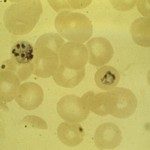Lien vers Pubmed [PMID] – 38517302
Lien DOI – 10.1113/JP285564
J Physiol 2024 Mar; ():
Swallowing is a complex process involving the precise contractions of numerous muscles of the head and neck, which act to process and shepherd ingested material from the oral cavity to its eventual destination, the stomach. Over the past five decades, information from animal and human studies has laid bare the complex network of neurones in the brainstem, cortex and cerebellum that are responsible for orchestrating each normal swallow. Amidst this complexity, problems can and often do occur that result in dysphagia, defined as impaired or disordered swallowing. Dysphagia is common, arising from multiple varied disease processes that can affect any of the neuromuscular structures involved in swallowing. Post-stroke dysphagia (PSD) remains the most prevalent and most commonly studied form of dysphagia and, as such, provides an important disease model to assess dysphagia physiology and pathophysiology. In this review, we explore the complex neuroanatomical processes that occur during normal swallowing and PSD. This includes how strokes cause dysphagia, the mechanisms through which natural neuroplastic recovery occurs, current treatments for patients with persistent dysphagia and emerging neuromodulatory treatments.

